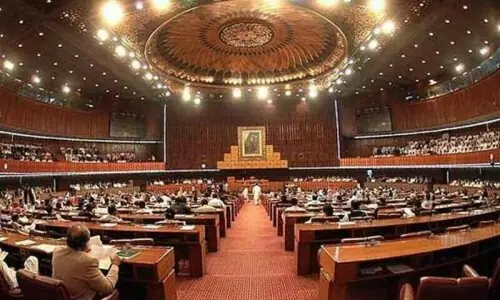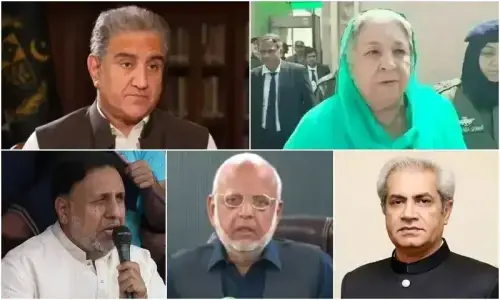There is no good enough reason to mourn the inability of the national security advisers of India and Pakistan to stick to their rendezvous in Delhi. The proposed interlocutors were mismatched.
If terror was the subject of the agreed meeting, the point persons, ideally, should have been the chiefs of Pakistan’s ISI and India’s RAW. These are the two worthies best placed to realistically tackle the tangled issues of terrorism. They know everything about each other’s operations and have little incentive for public postures, much less to reduce their confabulations into a blame game.
Let me quote a former RAW chief to press my point. Amarjit Singh Dulat, a mild-mannered Urdu speaking Sikh, recently published Kashmir: The Vajpayee years. The eventful Vajpayee period was when he left the Intelligence Bureau to head the external spy agency. There are invaluable vignettes in the book, particularly to do with India’s Kashmir and Pakistan policies, and the agency’s handling of both.
“It is not that I was overly keen to meet the ISI chief, but it is strange that I met the CIA chief, the Mossad chief, the Russian intelligence service chief — and even the inscrutable head of the Chinese secret service,” Dulat writes. The former spymaster also offers a sharp critique of pointless disruptions that take place in talks between the two countries.
If terror was the subject of the agreed meeting, the point persons, ideally, should have been the chiefs of Pakistan’s ISI and India’s RAW.
“Meeting other chiefs was part of the job. One needed to maintain liaison with other services. What didn’t make sense was never liaising with the ISI chief. The CIA and the KGB never stopped talking to each other even during the worst days of the Cold War; it is documented that during the Cuban missile crisis at the height of the Cold War, US president John F. Kennedy and Soviet premier Nikita Khrushchev were writing and talking to each other. Whereas we, at the drop of a hat, stop talking to the Pakistanis.”
Why do we stop talking? We heard from rightwing analysts all through last week the simple home truth. “Why do we bother with Pakistan? What can it give us? Nothing.” This pathology has been summed up in a Mir Taqi Mir couplet: Ishq Mir ek bhaari patthar hai/Ye kab tujh naatawa’n se uth-ta hai. (Love, dear Mir, is an unwieldy boulder, which you were never quite fit to shoulder.)
Mir’s trademark self-deprecation notwithstanding, the 18th-century verse describes the history of similar failed talks between the two countries, or what India’s foreign minister, Sushma Swaraj, described as a heavily potholed journey.
A few misleading excuses were offered on both sides for the failure of the NSAs to meet. One side insisted on meeting the Hurriyat leaders in Delhi before or after the official talks, the other responded by saying there was no room for a third party in the talks. Both played with words.
When they came close to solving the Kashmir tangle in Agra and later in the Musharraf-Manmohan Singh talks no one consulted the Hurriyat. In fact, if I remember right, Syed Ali Shah Geelani was miffed with Musharraf and so were the others for what they thought was a betrayal by Islamabad of their right to be involved. So what grand strategy could the Hurriyat be discussing with Pakistani representatives over a cup of tea? In any case, they were never being ushered into formal talks but merely to a reception with dozens of other invitees. Therefore, the Indian refrain of ‘no room for a third party’ was a non-sequitur.
Had they been more serious about making progress on any sensitive issue the two sides could have chosen a more tested route on Sunday but didn’t. Remember that in the past they had conducted back-channel talks authorised by their political leaders. In fact, whatever solutions are being discussed for Kashmir in the public sphere resulted from painstakingly patient and quiet diplomacy. It is curious that the Modi government, not known for taking the media into confidence, suddenly decided to reveal official dossiers to this and that news channel. One news channel thus briefed was offering to assist the foreign minister of India with its insights into the whereabouts of Dawood Ibrahim in Karachi! L.K. Advani gave the very information to Musharraf in 2001!
The media tamasha became more ridiculous when the usually unflappable Sartaj Aziz flaunted three plastic folders containing what he said were dossiers of RAW’s activity in Pakistan. We know Benjamin Netanyahu is indiscreet in the conduct of diplomacy. But this?
If Pakistan seriously wanted to discuss Kashmir or other important disputes — minus the security issues — the right forum, as has been the practice, would be the diplomatic channel. The point persons for this part of talks should be Pakistan’s Aziz and India’s Sushma Swaraj, or their foreign secretaries.To put it bluntly, there was no room in this week’s abandoned exercise for India’s current national security adviser Ajit Doval. He was the odd man out. Mr Doval has been ‘praised’ by indulgent Indian channels with the most bizarre compliment. He has been described as Prime Minister Modi’s 007 — his James Bond. Let’s hope India’s national security adviser is not enamoured of the description.
Finally, as Mir Taqi Mir said, if you want to talk, please put your heart into it. As things stand, both the prime ministers, and in Pakistan’s case the military too, are too distracted by serious domestic setbacks to have the time to engage each other. Pakistan has to rescue itself from the potential Karachi nightmare if MQM’s en masse resignation forces elections in Sindh.
It has also spilled the catch in Afghanistan as it were with Mullah Omar’s death. In India, Modi’s ratings have taken a huge hit in major opinion polls. There are already stories of massive bribes, and discoveries of ominous animal carcasses in Bihar’s temples and mosques. The Bihar elections will be a critical test for India’s ruling satraps. How can Pakistan help?
The writer is Dawn’s correspondent in Delhi.
Published in Dawn, August 25th, 2015
On a mobile phone? Get the Dawn Mobile App: Apple Store | Google Play

































